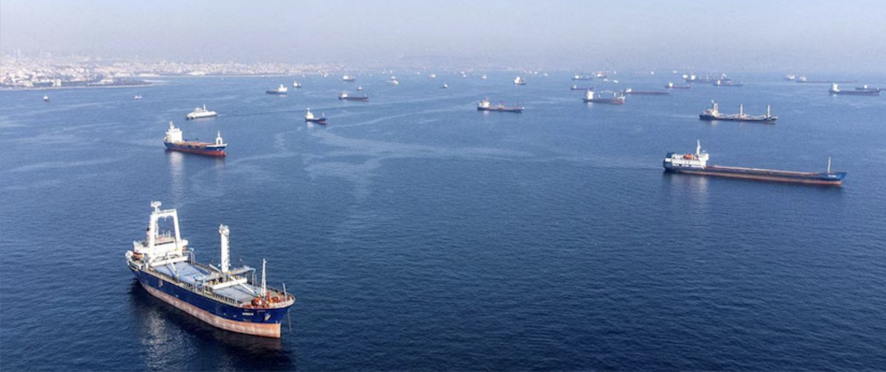UK Warns Russian Black Sea Strikes Are Delaying Crucial Grain Supplies to Palestinians and Global South

British Prime Minister Keir Starmer has raised concerns over Russia’s intensified strikes on Ukraine’s Black Sea ports, which are delaying vital grain shipments to the global south, including aid to Palestinians. Starmer condemned Russian President Vladimir Putin for jeopardizing global food security in an attempt to pressure Ukraine. The United Nations has also reported significant damage to civilian vessels and grain infrastructure since September due to the strikes.
Impact of Russian Strikes on Global Food Security
Russian missile strikes on Ukraine’s Black Sea ports have significantly delayed the export of essential food supplies, particularly grain, to regions reliant on Ukrainian agricultural exports. According to British Defence Intelligence, between October 5 and 14, at least four merchant vessels were hit by Russian munitions. This has directly affected shipments intended for the World Food Programme (WFP), including vegetable oil bound for Palestine and grain shipments to Egypt and southern Africa.
Ukraine is a leading global producer of wheat and corn, and prior to the Russian invasion in 2022, the country exported around six million tons of grain per month via the Black Sea. These exports remain a crucial source of revenue for Ukraine, even amid the ongoing conflict.
Russia’s Strategy and Global Consequences
Prime Minister Starmer denounced Putin’s actions, accusing him of weaponizing global food security to force Ukraine into submission. He stated that Russia’s attacks on Ukrainian ports harm millions of vulnerable people across Africa, Asia, and the Middle East, as these regions depend on Ukrainian grain imports to ensure food security. Starmer stressed that the targeting of civilian ships and grain infrastructure exacerbates the already dire food situation in many parts of the global south.
The United Nations echoed similar concerns, reporting that since September 1, six civilian vessels and grain infrastructure have been damaged by Russian strikes. The UN called this escalation in attacks “distressing” and underscored the potential for severe humanitarian consequences if the supply of foodstuffs from Ukraine continues to be interrupted.
Ukraine’s Role in Global Grain Supply
Before the conflict, Ukraine played a critical role in supplying grain to global markets, particularly to developing nations. The collapse of the UN-backed Black Sea Grain Initiative in 2022, which had previously ensured the safe passage of grain shipments, has further strained the global food supply chain. Despite these challenges, Ukraine has managed to establish a shipping corridor in the Black Sea, but continued Russian attacks threaten its viability.
Starmer’s statement reflects the broader international concern over the impact of Russia’s actions, with food shortages becoming a more pressing issue for regions in Africa, Asia, and the Middle East. As the conflict drags on, the disruption of Ukrainian grain exports could have long-term effects on global food prices and food security in some of the world’s most vulnerable regions.
Conclusion
Russia’s escalation of attacks on Ukraine’s Black Sea ports poses a significant threat to global food security, especially for regions heavily reliant on Ukrainian grain. The UK, through Prime Minister Keir Starmer, has called out Russia’s actions for their devastating global implications, particularly for millions in the global south. With continued uncertainty in the region, the potential for further disruptions to food supplies remains high, sparking concerns for the future of humanitarian aid and global stability.
Risk Warning: CFDs are complex instruments and come with a high risk of losing money rapidly due to leverage. 76.87% of retail investor accounts lose money when trading CFDs with this provider. You should consider whether you understand how CFDs work and whether you can afford to take the high risk of losing your money.
Disclaimer: This text constitutes marketing communication. It is not any form of investment advice or investment research or an offer for any transactions in financial instrument. Its content does not take into consideration individual circumstances of the readers, their experience or financial situation. The past performance is not a guarantee or prediction of future results.






